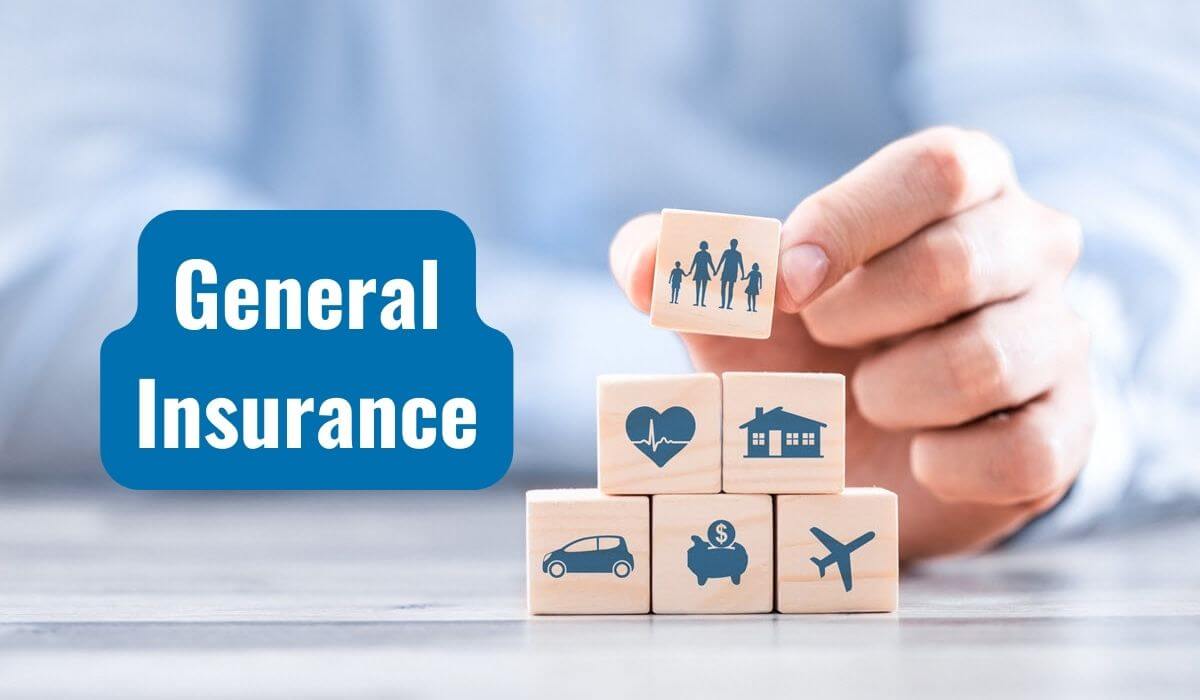What to Do After a Car Accident
In the wake of a car accident, your mind may race with confusion, fear, and adrenaline. Amidst the chaos, it’s crucial to remain composed and follow these steps to ensure your safety and well-being.
Stay Calm and Ensure Safety
In the immediate aftermath of an accident, it’s natural to feel overwhelmed. However, it’s imperative to stay calm and prioritize your safety. Pull over to the side of the road if possible, turn on your hazard lights, and check for injuries. If you or anyone else requires medical attention, call emergency services (911 in most areas) immediately. Use your phone or any available device to contact help if you’re unable to exit your vehicle safely. Remember, staying calm and focused can drastically improve your situation and the outcome for all involved.
Assess the situation carefully. If there are no apparent injuries or damages, you may be able to exchange information with the other driver(s) involved and proceed accordingly. However, it’s always advisable to seek medical attention, as some injuries may not be immediately apparent. Adrenaline can mask pain, so it’s better to err on the side of caution.
If the accident has caused significant damage or injuries, remain in your vehicle and wait for emergency services to arrive. Do not attempt to move yourself or others unless there is an immediate threat of further harm. Keep your seatbelt fastened and follow any instructions provided by the authorities.
While waiting for help, stay calm and avoid confrontations or unnecessary actions. Remember, ensuring the safety and well-being of yourself and others is the top priority.
What to Do After a Car Accident
The aftermath of a car accident can be a confusing and stressful time. However, it’s important to stay calm and take the necessary steps to protect yourself and your interests. Here’s what you should do after a car accident:
Exchange Information
First, pull over to a safe location if possible. Once you’re safe, get the names, contact information, insurance details, and license numbers of all drivers involved. Take pictures of the accident scene, damage to vehicles, and any injuries. This information will be essential for filing an insurance claim and determining liability.
If you’re unable to get all of the information at the scene, don’t worry. You can contact the police or your insurance company to obtain it later. However, it’s always best to get as much information as possible right away.
Oh, and please don’t forget to take pictures! They’re worth a thousand words, and they can be invaluable when it comes to proving your case.
What to Do After a Car Accident
After a car accident, it’s easy to feel overwhelmed and unsure of what to do. But taking the right steps can help protect your rights and ensure your safety. Here’s a guide to what you should do after a car accident.
Report the Accident
Contact the police to file an accident report. This is important even if the accident is minor. The police report will document the details of the accident and provide valuable evidence for insurance claims and legal disputes. Don’t leave the scene of the accident before the police arrive. If you do, you could be charged with a crime.
Exchange Information
Once the police have arrived, exchange information with the other drivers involved in the accident. This includes your name, address, phone number, insurance information, and license numbers. If there are any witnesses, ask for their names and contact information as well. It’s important to get all of this information as soon as possible, so it’s a good idea to keep a pen and paper in your car.
Take Photos
If you have a camera, take pictures of the accident scene. This will help you document the damage to your vehicle and the other vehicles involved. If there are any injuries, take pictures of those as well. The photos will help you prove your case if you need to file an insurance claim or take legal action. Plus, who knows, you might be able to win a Pulitzer Prize.
Get Medical Attention
Even if you don’t feel injured, it’s important to seek medical attention after a car accident. Some injuries, such as whiplash, may not show up immediately. By getting a checkup, you can rule out any hidden injuries and get treatment if necessary.
Contact Your Insurance Company
Don’t forget to contact your insurance company and report the accident. They will need to know the details of the accident and will help you file a claim. Be sure to keep all of your documentation related to the accident, including the police report, photos, and medical bills.
Hire an Attorney (Optional)
If you have been seriously injured in a car accident, you may want to consider hiring an attorney. An attorney can help you negotiate with the insurance company, file a lawsuit, and protect your rights.
What to Do After a Car Accident
A car accident can be a terrifying and stressful experience. In the aftermath of a crash, it’s crucial to know what steps to take to protect your health and legal rights. Here’s a comprehensive guide to help you navigate the immediate aftermath of a car accident:
Seek Medical Attention
Even if you don’t feel injured immediately, it’s imperative to get checked by a doctor as soon as possible. Hidden injuries, such as concussions or internal bleeding, may not manifest symptoms right away. A medical evaluation can rule out any underlying conditions and ensure your well-being.
Exchange Information
After the accident, exchange essential information with the other driver involved. This includes your name, address, phone number, insurance policy details, and license numbers. Do not admit fault at the scene; this can hurt your case later on.
Document the Scene
Take photos of the accident scene, including the damage to your vehicle, the other vehicle, and any visible injuries. Gather any witness statements and jot down as many details as possible. This documentation will serve as valuable evidence in case of a dispute.
Contact Your Insurance Company
Notify your insurance company about the accident as soon as possible. Provide them with the details of the incident, including the other driver’s insurance information. Your insurance company will guide you through the claims process and help you get the compensation you deserve.
Hire an Attorney (Optional)
If the accident was serious or there is a dispute over fault, consider hiring an attorney. An experienced lawyer can represent your interests, negotiate with the insurance companies, and ensure you receive fair compensation for your injuries and damages. They will also navigate the legal complexities to help you protect your rights.
Follow Up with Medical Care
Even after seeking immediate medical attention, it’s crucial to follow up with your doctor as recommended. Injuries may take time to heal, and ongoing care is essential for a full recovery. Adhering to your doctor’s instructions will maximize your chances of a healthy outcome.
Stay Calm and Cooperative
Understandably, car accidents can be overwhelming. However, it’s essential to remain calm and cooperative with the police, medical professionals, and insurance adjusters. Your demeanor and cooperation will help create a positive environment for resolving the situation.
Additional Tips:
If the accident involves injuries, call 911 immediately.
Never leave the accident scene until the police arrive.
Stay informed about your legal rights and responsibilities.
Consider using a dashcam to document any future incidents.
What To Do After You’ve Been In A Car Accident
Car accidents are never fun. They can be traumatic, stressful, and expensive. If you’re ever involved in one, it’s important to know what to do. Here are a few tips:
Stay Calm
It can be difficult to stay calm after a car accident, but it’s important to try. Take a few deep breaths and focus on the task at hand.
Check For Injuries
First, check yourself for injuries. Once you’re sure you’re okay, check your passengers. If anyone is injured, call 911 immediately.
Move Your Car To Safety
If possible, move your car to the side of the road. This will help prevent further accidents.
Exchange Information
Once you’re in a safe place, exchange information with the other driver(s) involved in the accident. This includes your name, address, phone number, insurance information, and license plate number.
Gather Evidence
Take pictures of the accident scene, including damage to the vehicles and any injuries. You should also get the names and contact information of any witnesses.
Report The Accident
In most states, you are required to report any car accident to the police. Even if the accident is minor, it’s a good idea to file a police report. This will create a record of the accident that can be helpful if you need to file an insurance claim.
Contact Your Insurance Company
Notify your insurance company about the accident as soon as possible. They will be able to help you file a claim and get your car repaired or replaced.
Get Medical Attention
Even if you don’t think you’re injured, it’s important to see a doctor after a car accident. Some injuries, such as whiplash, may not be immediately apparent.
Hire A Lawyer
If you’ve been seriously injured in a car accident, you may want to consider hiring a lawyer. A lawyer can help you get the compensation you deserve for your injuries.
What to Do After a Car Accident
After experiencing a car accident, it’s crucial to stay calm and prioritize safety. Here are essential steps to take in the aftermath:
1. Stay Calm and Assess the Scene
In the immediate aftermath, take a deep breath and compose yourself. Check for injuries and assess the overall situation. If possible, move to a safe location away from traffic.
2. Contact Emergency Services
If anyone is injured, call 911 or your local emergency number promptly. Stay on the scene and cooperate with first responders as they provide medical attention and secure the area.
3. Exchange Information
Once the scene is secure, exchange contact and insurance information with the other driver(s) involved. Also, take note of any witnesses who may have observed the accident.
4. Document the Accident
Use your smartphone or pen and paper to document the accident. Take photographs of any damage to vehicles, injuries, and the surrounding scene. Gather as much evidence as possible.
5. Report the Accident to the Police
In many states, it’s required to report car accidents to the police, especially if there’s significant damage or injuries. File a police report to ensure an official record of the incident.
6. Seek Medical Attention
Even if you don’t feel injured immediately, it’s advisable to seek medical attention promptly. Some injuries, such as whiplash, may not manifest until later. Consult with a healthcare professional to rule out any underlying issues and get the necessary treatment. If pain or discomfort persists, follow up with your doctor as needed.
Getting medical attention not only ensures your well-being but also strengthens your case if there are any insurance disputes. It provides documented evidence of injuries and supports your claim for compensation.
Remember, seeking medical attention is not just about treating physical injuries. It’s also about protecting your health and establishing a clear record of the accident’s impact.
The insurance companies will likely request medical records to assess the extent of your injuries and determine the appropriate compensation. Therefore, it’s crucial to seek medical attention promptly and document all treatments and appointments.
If you’re unable to seek medical attention immediately, keep a record of any pain or discomfort you experience. Note the time, location, and severity of your symptoms. This information can be helpful if you need to file an insurance claim or pursue legal action later.
Hire an Attorney (Optional)
If the accident was severe or there is a dispute, consider hiring an attorney to represent your interests and guide you through the legal process.
What to Do After a Car Accident
After a car accident, it’s easy to feel overwhelmed and unsure of what to do next. Here’s a step-by-step guide to help you navigate the aftermath of a collision and protect your rights:
1. Ensure Safety
First and foremost, ensure the safety of yourself and others involved. Move your vehicle to the side of the road if possible, and turn on your hazard lights. Check for any injuries and call 911 immediately if anyone is hurt.
2. Exchange Information
If possible, exchange information with the other drivers involved in the accident. This includes your names, addresses, phone numbers, insurance policy numbers, and license plate numbers. Take pictures of the damage to both vehicles and the surrounding area.
3. Contact the Police
If the accident is serious or if there is any dispute about fault, contact the police. They will investigate the accident and create an official report, which can be helpful for insurance claims and legal purposes.
4. Report the Accident to Your Insurance Company
As soon as possible, report the accident to your insurance company. They will need to know the details of the accident, including the other driver’s information and the extent of the damage. Your insurance company will then guide you through the claims process.
5. Seek Medical Attention
Even if you don’t feel injured immediately after an accident, it’s important to seek medical attention as soon as possible. Some injuries may not be apparent until days or weeks later, and it’s crucial to get treatment to prevent further complications.
6. Hire an Attorney
If the accident was serious or if you are having trouble getting fair compensation from the other driver’s insurance company, consider hiring an attorney. An experienced attorney can help you navigate the legal process, protect your rights, and maximize your compensation.
7. Follow Up
Keep track of any expenses related to the accident, including medical bills, property damage, and lost wages. Follow up with the police and insurance companies regularly to check on the progress of investigations and claims. If there are any updates or changes, make sure to contact your insurance company and attorney promptly.
Remember, after a car accident, it’s essential to stay calm and prioritize safety. By following these steps, you can protect your rights and navigate the aftermath of the collision as smoothly as possible.




Leave a Reply